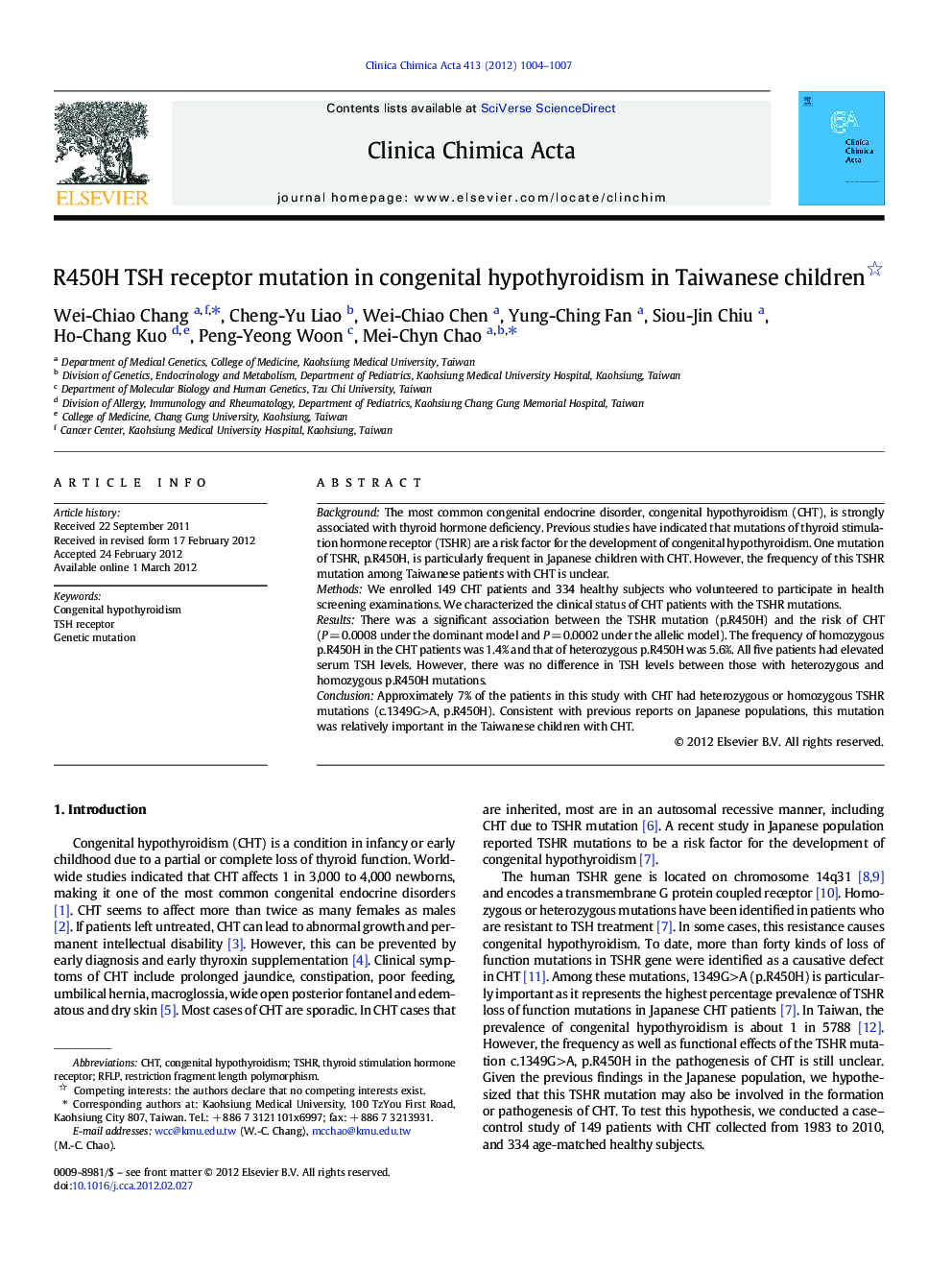| Article ID | Journal | Published Year | Pages | File Type |
|---|---|---|---|---|
| 1965678 | Clinica Chimica Acta | 2012 | 4 Pages |
BackgroundThe most common congenital endocrine disorder, congenital hypothyroidism (CHT), is strongly associated with thyroid hormone deficiency. Previous studies have indicated that mutations of thyroid stimulation hormone receptor (TSHR) are a risk factor for the development of congenital hypothyroidism. One mutation of TSHR, p.R450H, is particularly frequent in Japanese children with CHT. However, the frequency of this TSHR mutation among Taiwanese patients with CHT is unclear.MethodsWe enrolled 149 CHT patients and 334 healthy subjects who volunteered to participate in health screening examinations. We characterized the clinical status of CHT patients with the TSHR mutations.ResultsThere was a significant association between the TSHR mutation (p.R450H) and the risk of CHT (P = 0.0008 under the dominant model and P = 0.0002 under the allelic model). The frequency of homozygous p.R450H in the CHT patients was 1.4% and that of heterozygous p.R450H was 5.6%. All five patients had elevated serum TSH levels. However, there was no difference in TSH levels between those with heterozygous and homozygous p.R450H mutations.ConclusionApproximately 7% of the patients in this study with CHT had heterozygous or homozygous TSHR mutations (c.1349G>A, p.R450H). Consistent with previous reports on Japanese populations, this mutation was relatively important in the Taiwanese children with CHT.
► We analyzed the TSHR (p.R450H) mutation frequency in CHT patients in the Taiwanese population. ► The frequency of homozygous p.R450H in the CHT patients was 1.4%. ► There was no difference in TSH levels between those with heterozygous and homozygous p.R450H mutations.
